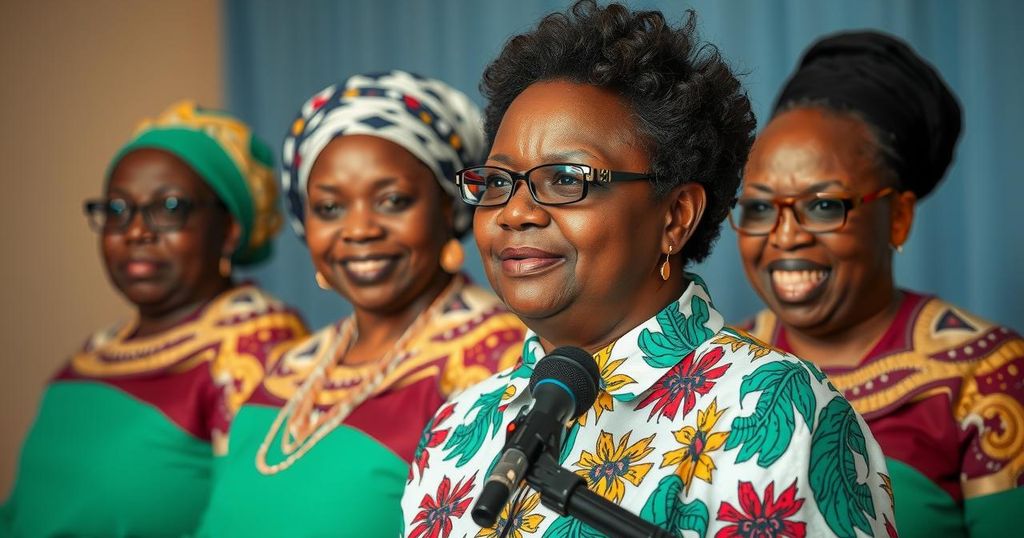Enhancing Women’s Representation in Botswana’s Parliament: A Call to Action for Political Parties
Botswana faces a significant challenge regarding women’s representation in parliament, with only 28 out of 258 candidates being female for the upcoming 2024 elections. This constitutes merely 10.85%, a decline from previous years. Despite women representing 54% of eligible voters, their participation in decision-making remains critically low. Political parties must reform their structures and candidate selections to address this imbalance and promote greater inclusivity in governance.
Botswana’s political landscape faces a pressing challenge regarding female representation, particularly in light of the upcoming 2024 general elections. Only 28 women participated in the parliamentary races, averaging a mere 10.85% of candidates, with only three securing elected positions in the current parliament. This decline continues a troubling trend from previous years, where women held 5.26% of parliamentary seats. Despite women constituting 54% of registered voters, their participation in decision-making roles remains critically low. Political parties must actively reform their internal structures and candidate selection processes to foster inclusivity and ensure that women’s voices influence policymaking. The Southern African Development Community’s 2002 gender checklist aimed to rectify such disparities, emphasizing the need for reforms that prioritize gender equality within political frameworks.
In recent years, various nations have constructed constitutional mandates to ensure women’s representation, reflecting an increasing recognition of the vital role women play in governance. In Botswana, however, this commitment to gender parity still requires substantial effort and genuine political will. Without the active involvement of political parties, the path towards equity and effective representation may remain obstructed, undermining the democratic principles they stand for.
The issue of women’s representation in Botswana’s parliament has garnered significant attention, particularly as the nation approaches its 2024 general elections. Alarmingly, only a small fraction of parliamentary candidates are women, which raises concerns over inclusivity in governance. Women’s representation in Botswana is not only a question of numbers; it is closely linked to the overall health of its democratic institutions. Despite women’s substantial presence among voters, their almost negligible representation in leadership positions signals systemic barriers that need urgent redress.
In conclusion, Botswana’s path towards achieving equitable representation of women in parliament necessitates decisive action from its political parties. As the upcoming elections loom, it is imperative for these parties to address the chronic underrepresentation of women in politics. By committing to reforms and implementing strategies that prioritize gender equality, they can ensure a more inclusive approach to governance, one that accurately reflects the electorate’s demographic composition and enhances the democratic fabric of the nation.
Original Source: constitutionnet.org




Post Comment